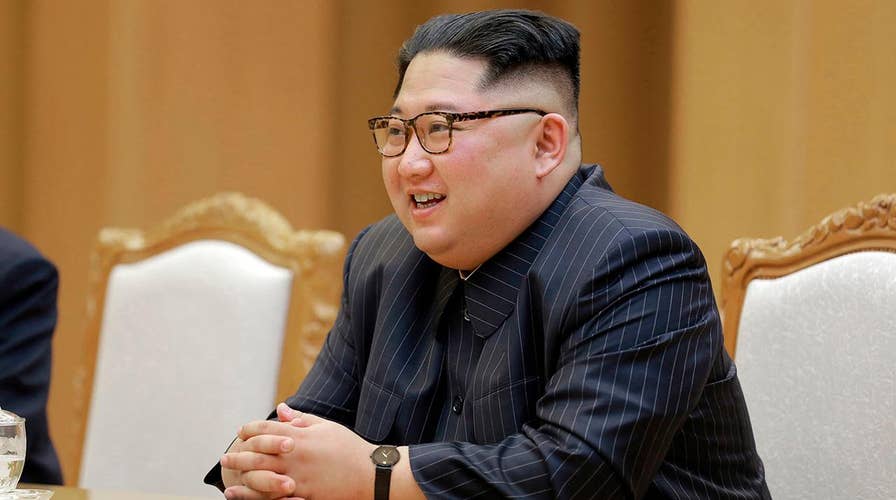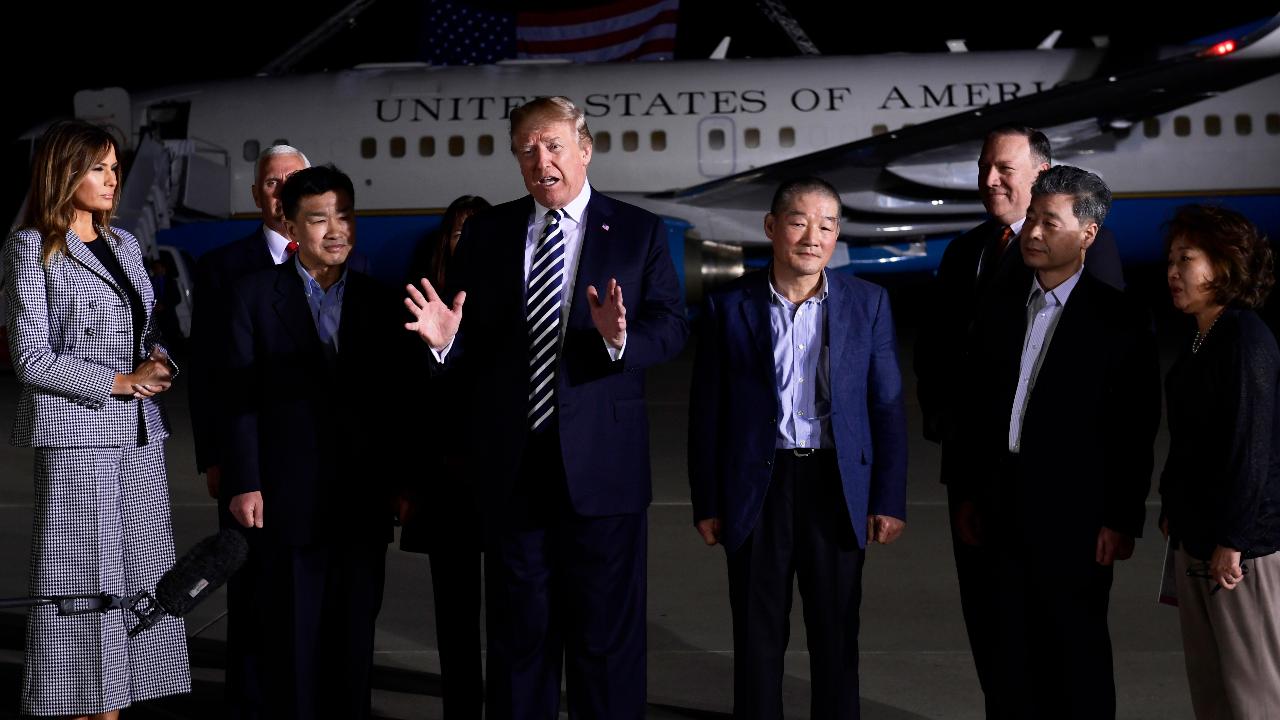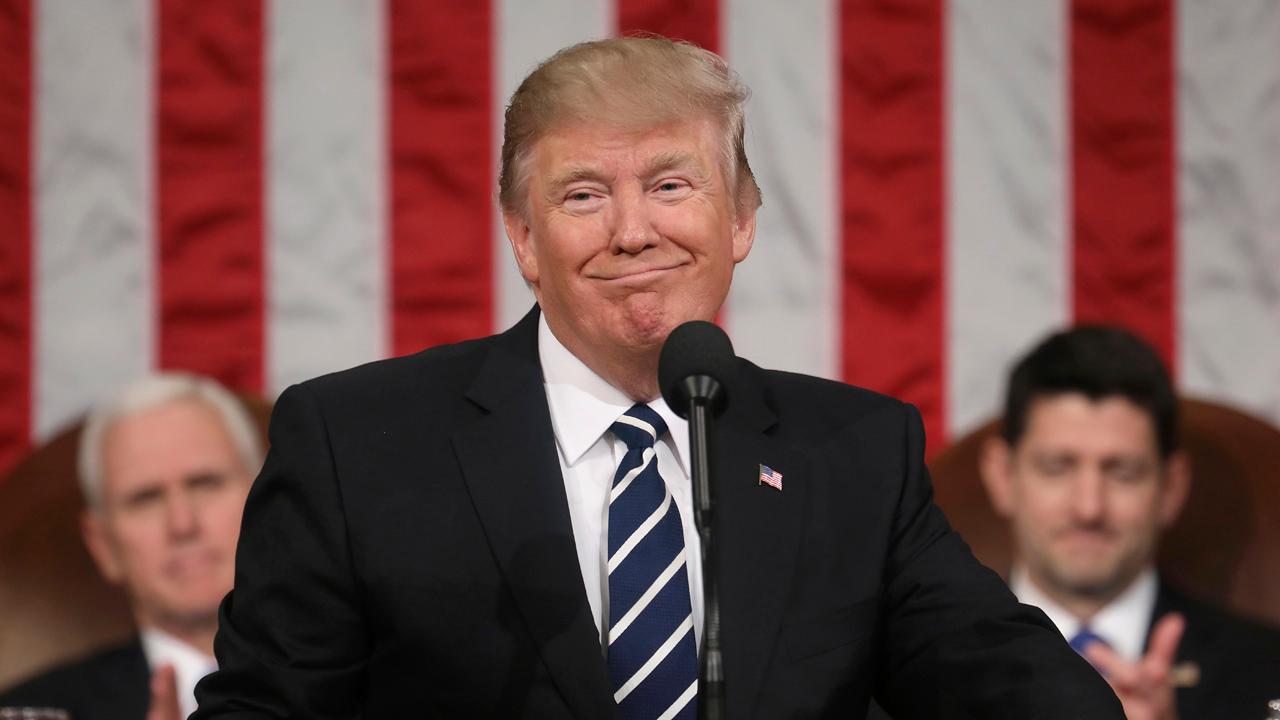North Korea frees three Americans ahead of Trump summit
Fox News foreign policy analyst Kiron Skinner reacts in on 'Fox & Friends First.'
If you’ve been following the news about Korea lately, then you’ve rubbed your eyes and pinched your skin more than once to verify that what you’re watching on TV is actually real.
I know I did this morning when I saw the three Americans freed by North Korea step out of the airplane and into U.S. soil — one of them for the first time in nearly 950 days. I did again shortly later when I read President Trump announced he is meeting with North Korea’s supreme leader, Kim Jong Un, in Singapore next month. It will be the first ever meeting between a U.S. president and a North Korean leader.
And just a few weeks ago, the world collectively rubbed its eyes as it watched another first: Kim himself setting foot into South Korea. No North Korean leader had crossed the military demarcation line dividing the Korean people since the Korean War — nearly 70 years ago.
The global reaction was captured in a media center not far from the DMZ, where a crowd of 2,000 journalists let out an audible gasp as they saw President Moon Jae-in welcoming Kim into South Korea.
In fact, it seems like we’re barely able to keep up with the news coming out of Korea. Everything about the quickly unfolding peace talks seems surreal.
Only five months ago, North Korea was testing an intercontinental ballistic missile capable of hitting New York City, Los Angeles and every city in between with a nuclear warhead. Now, we see pictures of a smiling Kim posing with Presidents Moon of South Korea and Xi Jinping of China.
As someone who has traveled inside North Korea and spent more than a decade providing resources for the Korean people, I’m greatly encouraged to see peace might actually be within reach. Yet, for as hopeful as it all may seem, we cannot let smiles and handshakes fool us. There are countless people still suffering inside North Korea. They’re the ones who pay the ultimate price for the outcome of these negotiations.
An estimated 18 million people in North Korea depend on the state’s Public Distribution System rations of potatoes and cereals, according to a 2017 United Nations report. These rations amount to less than a pound a day per person. Additionally, 10.5 million — two in five North Koreans — are undernourished, putting children especially at risk.
While North Korea faces many natural challenges to its national food production, this rampant malnourishment is largely man-made. The global military spending average is between 2 to 2.5 percent of a country’s GDP. North Korea spends nearly a quarter of its GDP on its armed forces. The regime essentially starved its own people to develop the nuclear-capable missiles that effectively paved the way to the current peace negotiations.
Still, perhaps just as egregious is North Korea’s brutal oppression of people it deems political enemies, including Christians.
North Korea is the number one persecutor of Christians in the world. The regime has ranked at the top of Open Doors’ World Watch List for 16 years straight. Tens of thousands of Christians languish in political prison camps, some simply because they were caught with a Bible. I have traveled to the DMZ and heard firsthand the stories of defectors who have faced grueling persecution because of their faith.
At the request of North Korean Christians, World Help pledged to send 100,000 Bibles to North Korea as soon as possible. Thanks to many generous supporters, we’ve provided more than 68,000 Bibles, some of which are already in East Asia ready to be smuggled into the country. Though owning a Bible is literally a prison sentence, North Korean Christians are desperate to get their hands on one and experience the hope within its pages.
As global leaders try to find a solution to the long-standing conflict in the Korean Peninsula, they must consider the humanitarian side of the equation as well as military and political factors. We would be remiss if a nonproliferation agreement is reached — but the suffering of countless innocent men, women and children continues to be ignored.
North Koreans placed their hope in similar peace summits in 2000 and 2007, which ended in prolonged human rights abuses. We shouldn't assume that these new talks mean we can become complacent about fighting for innocent North Korean people. We can’t forget them now.



